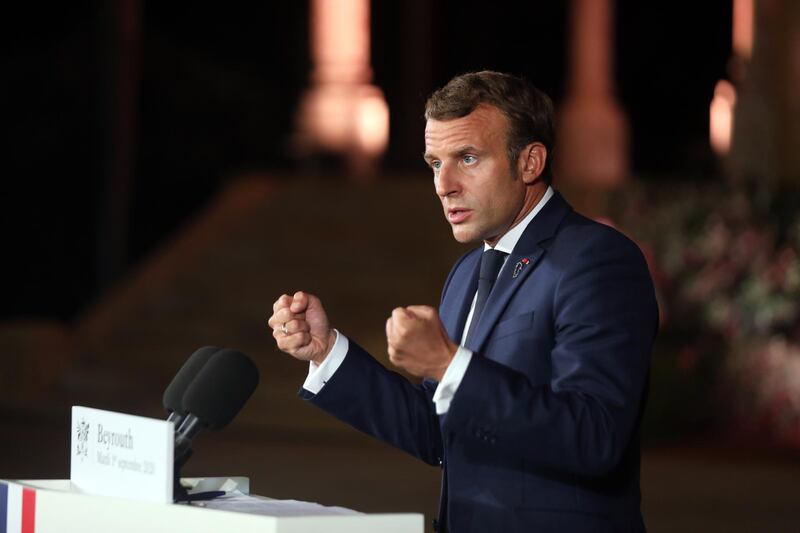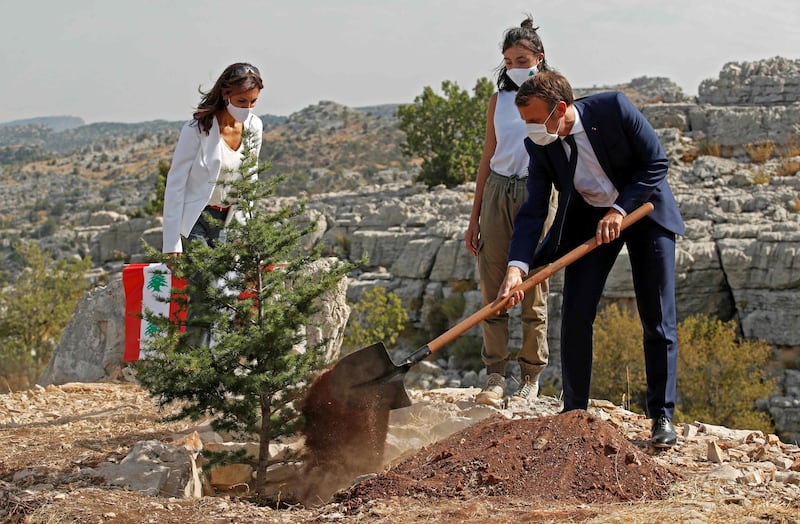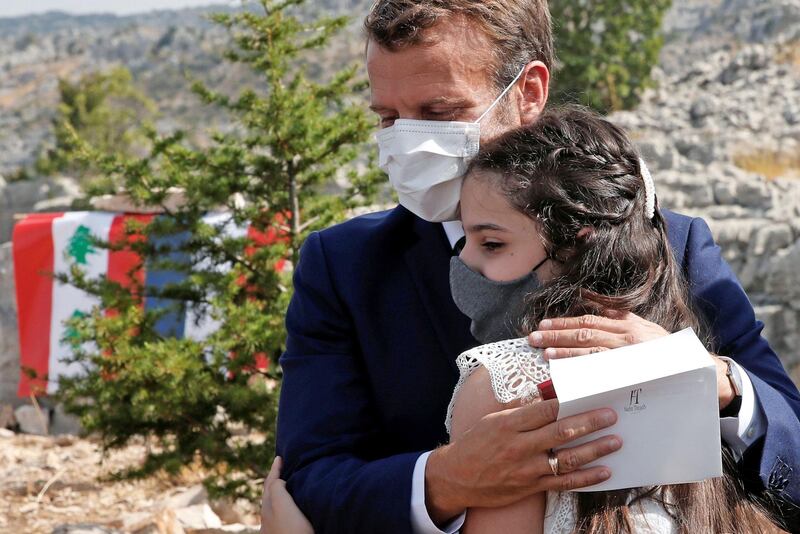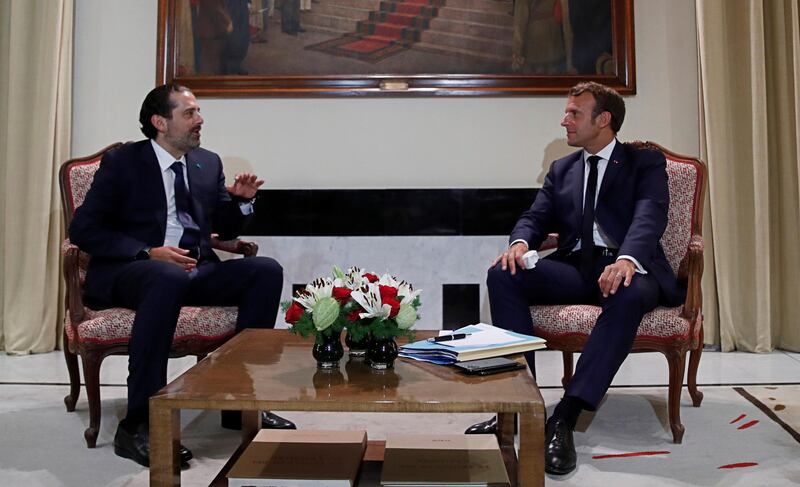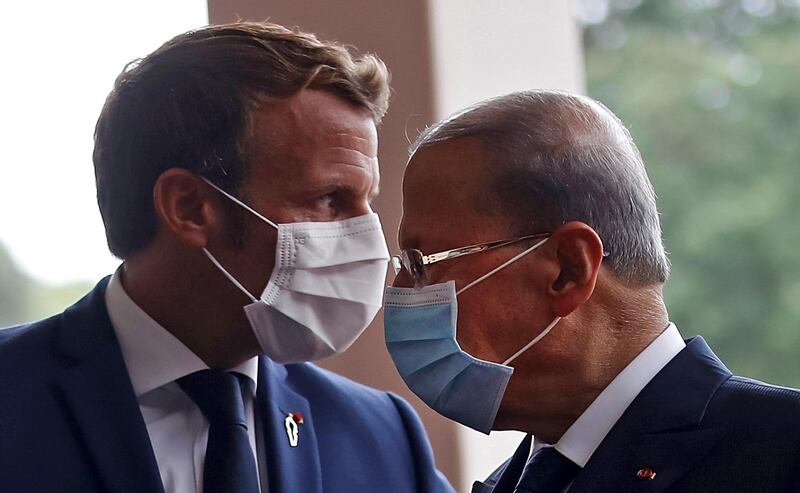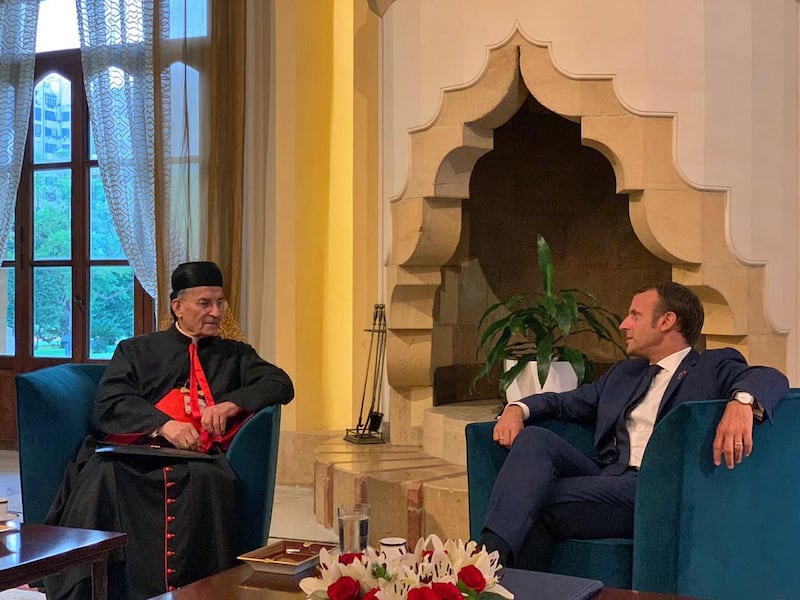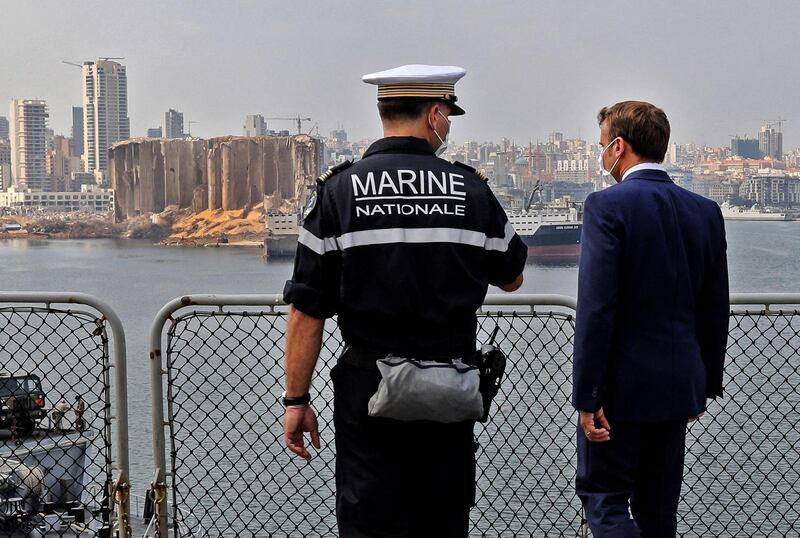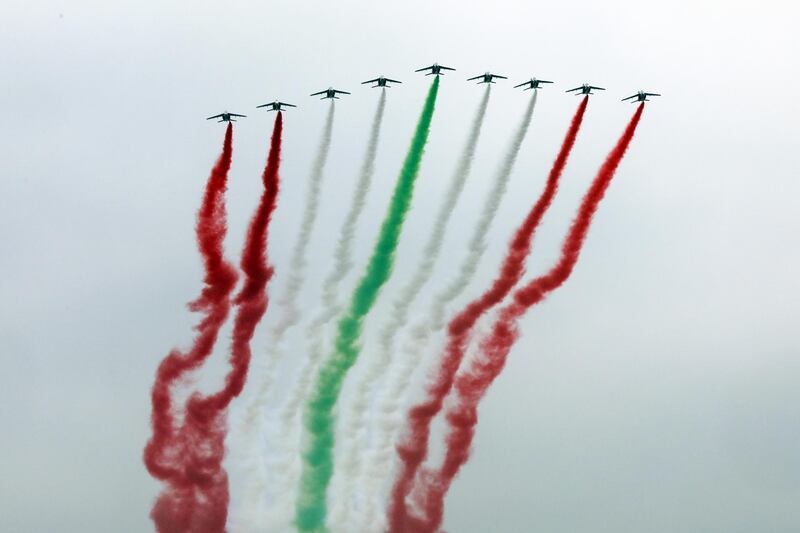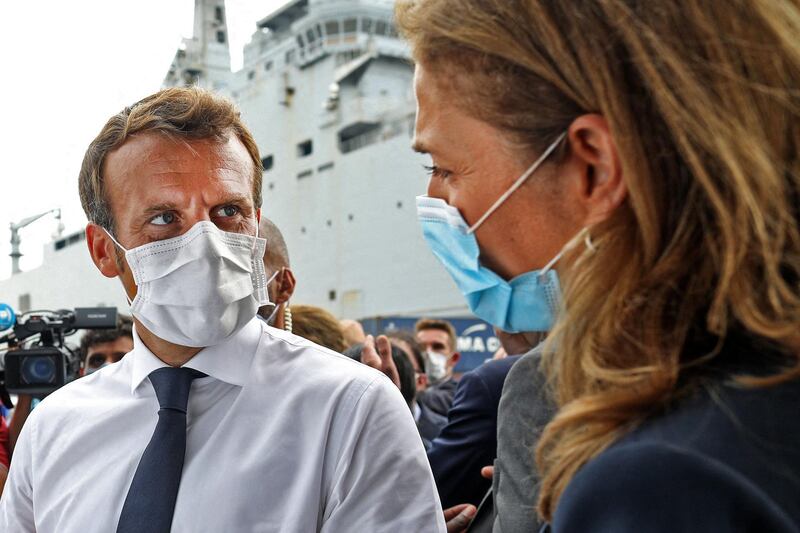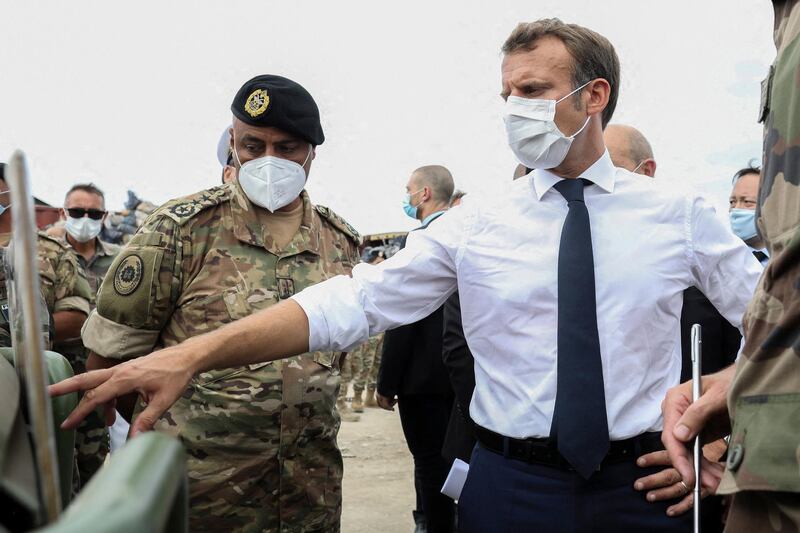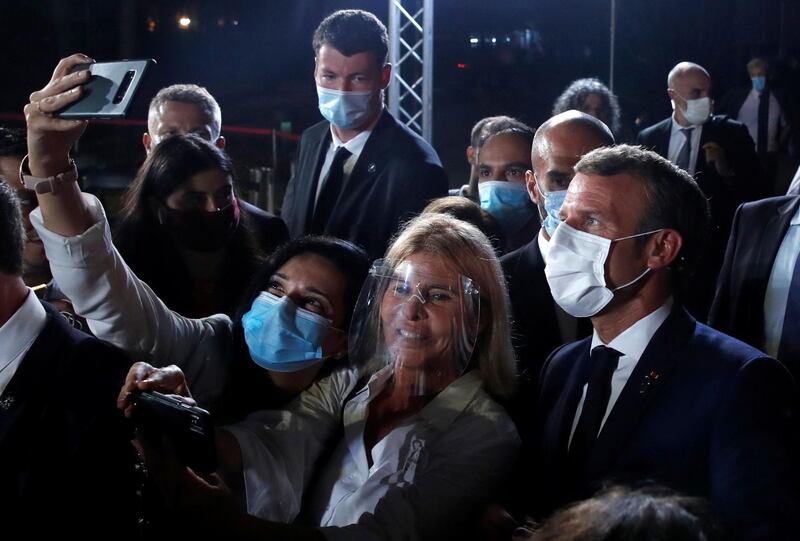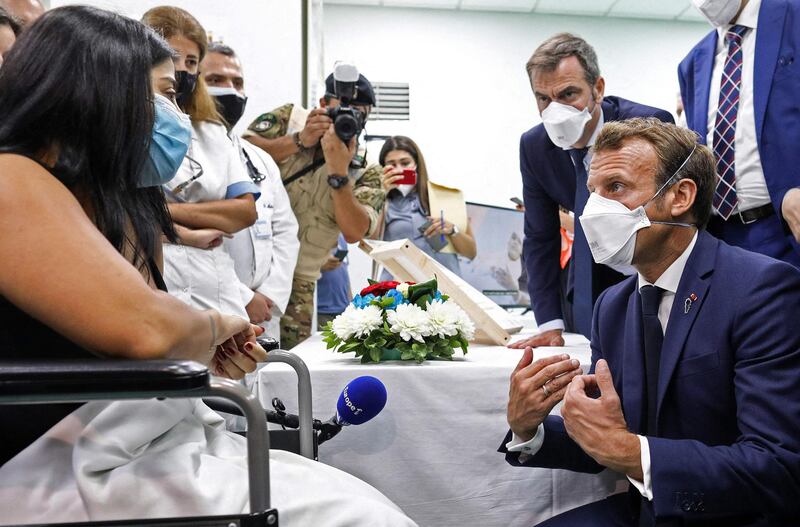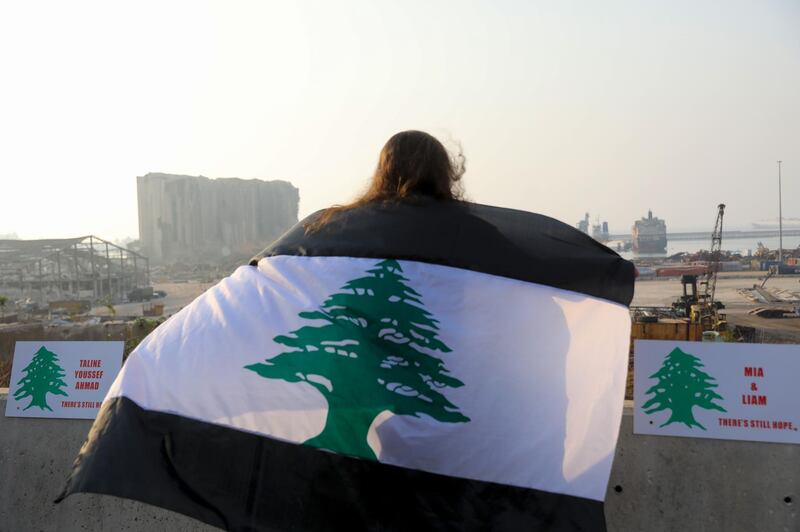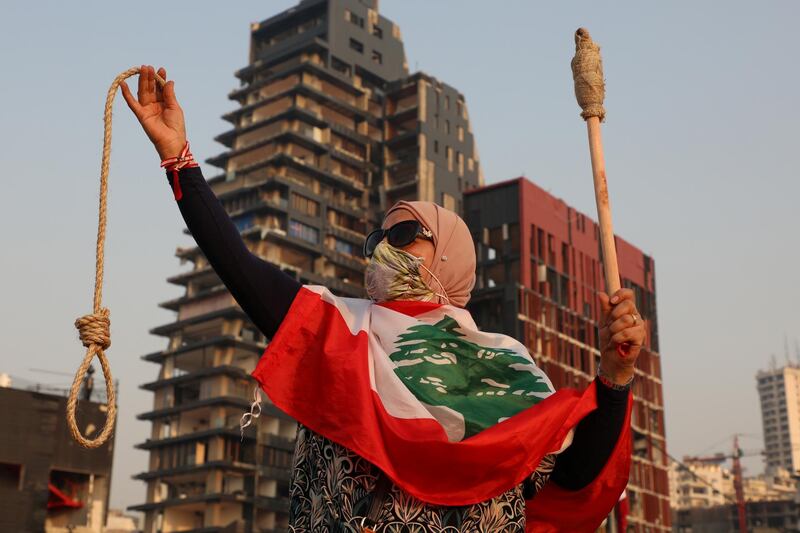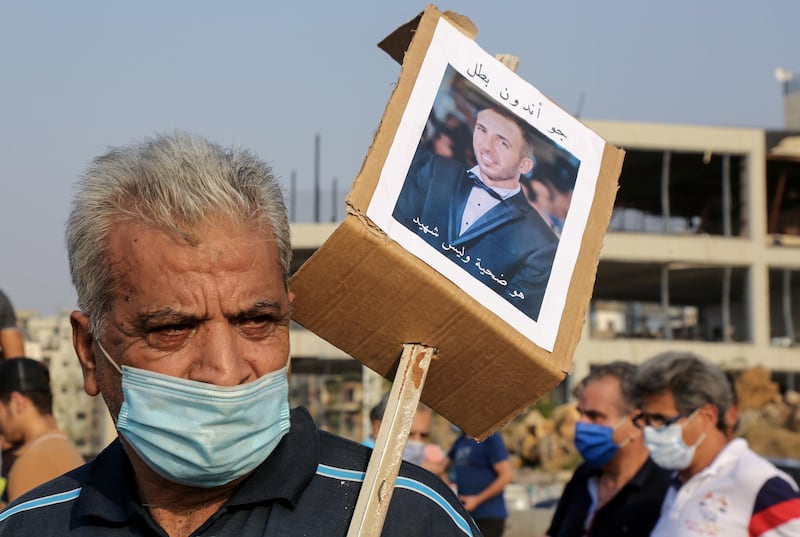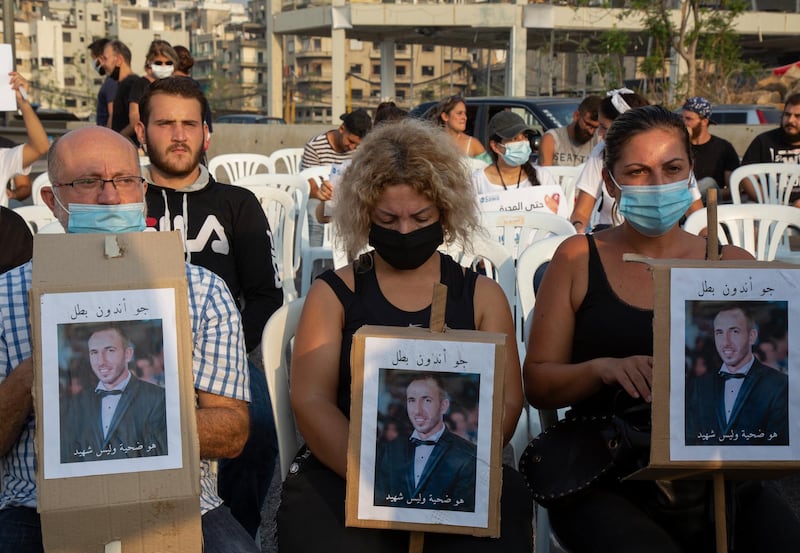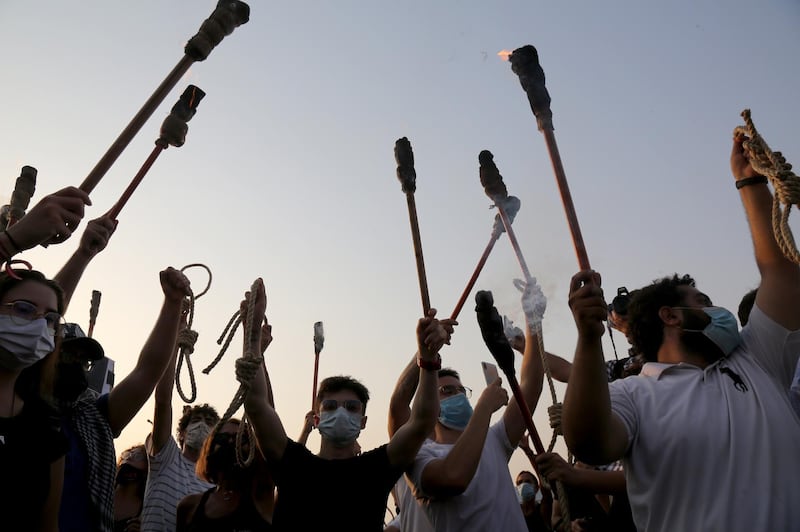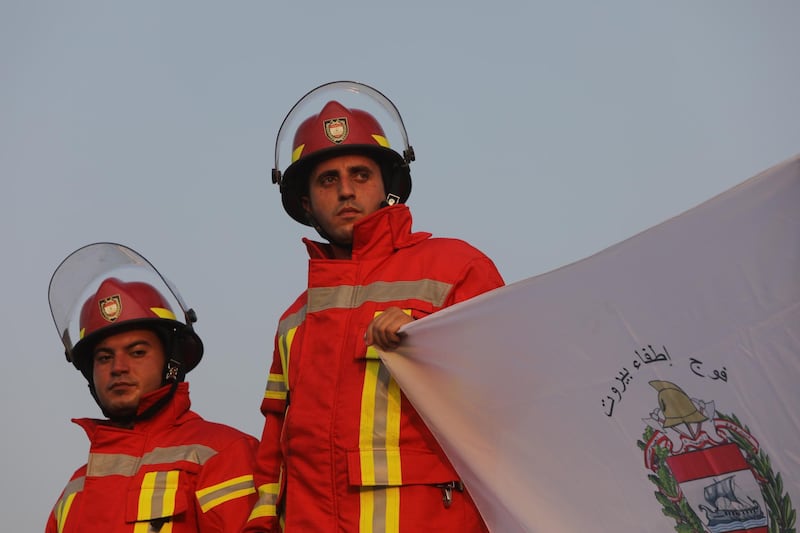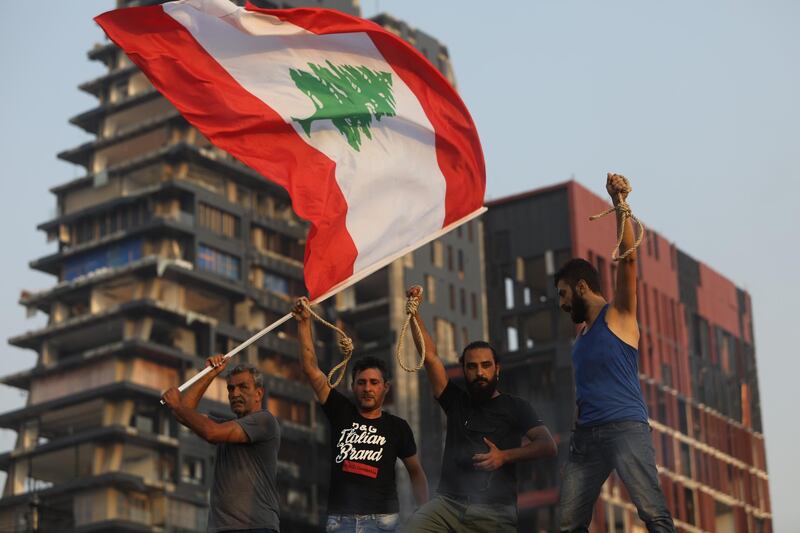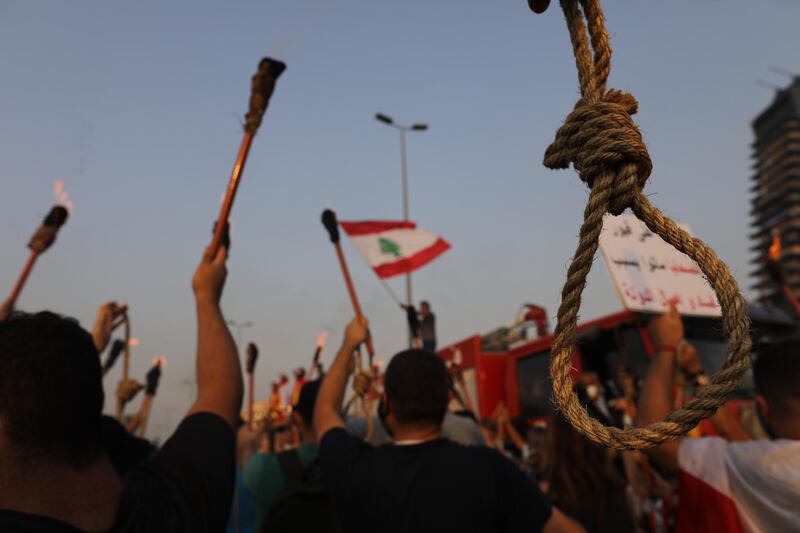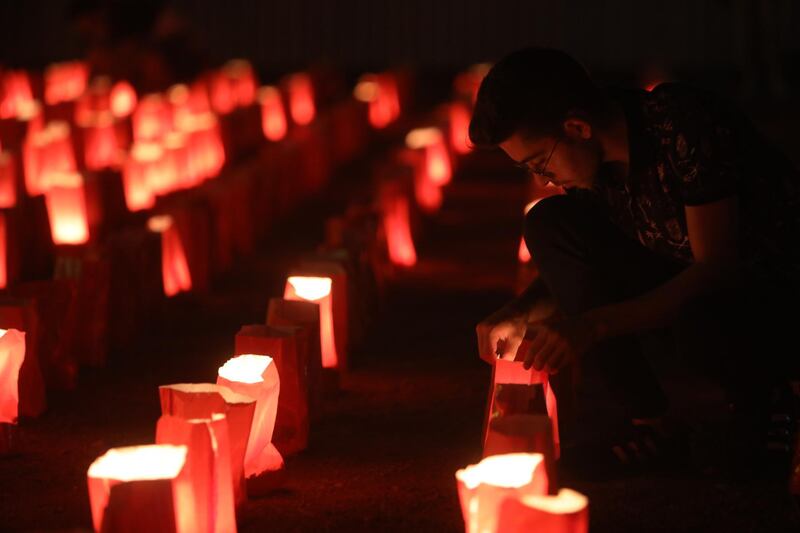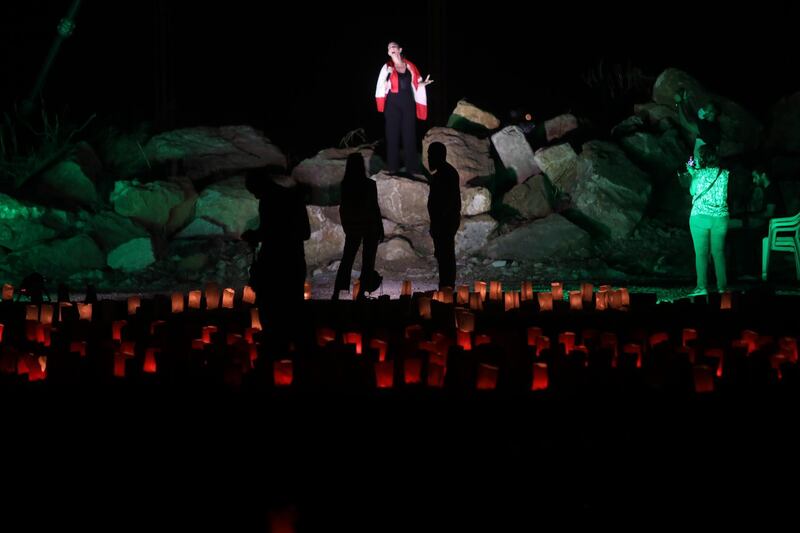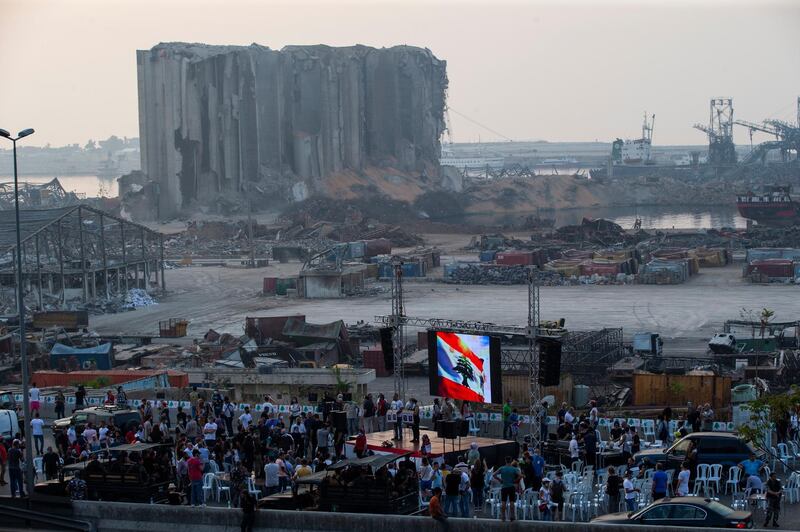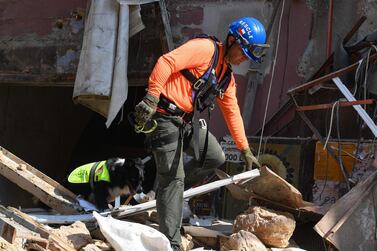When a French reporter suggested shortcomings in Emmanuel Macron’s high-profile initiative to promote reform in Lebanon, France's president blew a fuse.
In a very public rant, Mr Macron berated veteran Le Figaro journalist Georges Malbrunot as irresponsible for obtaining a scoop that revealed the contents of an eight-minute conversation he had in Beirut with a senior Hezbollah member.
The French leader visited Beirut twice in one month to implore the same political class that led Lebanon to ruin to overhaul the government after the spectacular explosion at the Beirut port on August 4. In a carrot-and-stick approach, there was even suggestion of joining the US in new sanctions targeting politicians if Mr Macron's demands were thwarted.
The flashpoint encounter with the journalist represented a political gift for Hezbollah. It also undercut Mr Macron's efforts to whip up a wind of change in the country that was once a French colonial possession.
Domestic calls to intervene
The case for Mr Macron's initiative was put in an editorial in Le Monde, the Parisian daily, last week. It pointed out that Turkey and Iran had sent senior envoys to Lebanon following the tragedy and their influence needed a counterbalance. "Should [France] go?" the paper asked. "Yes, no doubt, if only because France and Lebanon are so intimately linked, historically, emotionally and intellectually. But also because, if it is not France, who? The United States is absent, and the European Union has too much to do."
Mr Macron used a phrase in an interview en route to Beirut that the paper said bore further scrutiny. He said he had put his "political capital" on the line to push for change in Lebanon. Le Monde said the stakes would increase as he held an international pledging conference for Lebanon in October and then returned to Beirut in December to reinforce the pressure for reforms.
"The risk of Emmanuel Macron's Lebanese 'bet' increases with each visit," it said, warning that his expectations “would crash against the wall of Lebanese political inertia".
Service for Beirut dead marred by protests
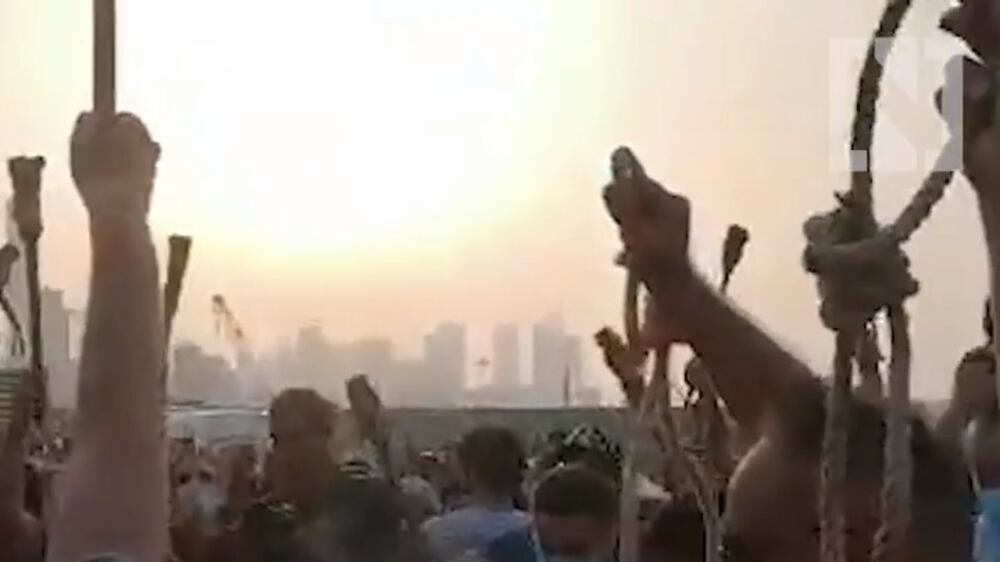
Limits to Hezbollah flexibility
Mr Macron was visiting Lebanon against the backdrop of pro-Iran Hezbollah's increased sway over the Lebanese state and a financial meltdown that started last October.
Hezbollah was instrumental in crushing at the start of this year a mass protest movement demanding the removal of the entire political class.
Popular anger about official inaction that led to the ammonium nitrate explosion at the port revived the protest movement and led to the resignation of prime minister Hassan Diab, whose cabinet was strongly aligned with Hezbollah.
Mr Macron's conversation with Hezbollah operative Mohammad Raad, who is also a Lebanese parliamentarian smacked of political naivety, political analysts said.
He implored Mr Raad to drop Hezbollah’s pro-Iran agenda and help build a Lebanese state for the sake of Hezbollah’s families.
"I want to work with you to change Lebanon. But prove that you are Lebanese," Mr Macron said, according to Le Figaro.
“Do you want to help the Lebanese, yes or no? Are you talking about the Lebanese people, yes or no? Leave Syria and Yemen, and do the job here to build a state because this new state will also benefit your families."
It was the first known time a Western head of state talked face to face with a senior Hezbollah member. Mr Raad is known in Lebanese political circles as “the wall”, a moniker bestowed upon him for his intransigence by Lebanese Druze leader Walid Joumblatt.
Veteran Lebanese political commentator Abdulwahab Badrakhan said Mr Macron seems not to have grasped that Hezbollah is the least affected by the collapse in Lebanon.
“Ultimately Hezbollah is self-financing and has a self-contained economy in its own areas. It receives everything from Iran, from vegetables to missiles,” Mr Badrakhan said by phone from London
Mr Badrakhan said as long as Mr Macron does not try to undermine Hezbollah as the dominant power in Lebanon, the group will be willing to play along with the reform proposals he put forward to extract Lebanon from economic collapse.
“Notice that Macron stayed away from any criticism of Iran and did not mention the weapons arsenal in Hezbollah’s possession,” Mr Badrakhan said.
He said Hezbollah controls the presidency and parliament but could accept less influence in a new cabinet “as long as the proposed reforms remain in the sphere in the economy and do not address the political issues".
Cold politics behind French charm offensive
In choosing to cajole Hezbollah, Mr Macron appears to have put narrower French political and commercial interests ahead of his stated desire to save Lebanon.
“Ultimately, basic interests, drive for influence and reviving a historical role for France are behind Macron’s involvement in Lebanon,” Mr Badrakhan said.
Ahead of Mr Macron’s visit, the French officials presented Lebanese politicians with a set of demands in a two-page paper leaked to Lebanese media.
It asks Lebanon’s new government, when it takes office, to resume talks with International Monetary Fund on a rescue package, to audit the central bank, reform the dysfunctional electricity sector, and set up an anti-corruption agency.
Talks between the IMF and the government for $10 billion in emergency funding de facto collapsed in May-June after the IMF indicated that the Lebanese reform proposals were insufficient and lacked detail.
There are those who believe Mr Macron should have taken a different approach and followed a precedent set by former president Jacques Chirac.
Chirac visited Beirut in the aftermath of the 2005 assassination of statesman Rafik Hariri without meeting with Emile Lahoud, the president and a main Hezbollah ally at the time. Through the snub, Chirac demonstrated the culpability of the elite.
Unwillingness to explore alternatives
Chibli Mallat, one of the Middle East's top legal scholars, told The National that Mr Macron took "the correct position" by demanding Hezbollah leave Syria and Yemen.
“Military support by Lebanese citizens in foreign theatres is unconstitutional and criminal under the law,” Mr Mallat said. “But the very fact that Hezbollah has weapons is illegal in Lebanon, and that is where Macron should start.”
Mr Mallat is first co-ordinator of The Rally for the Revolution, a group of prominent civilian figures supporting the protest movement that is also known by its Arabic acronym TMT.
By visiting Beirut twice and meeting with President Michel Aoun, Hezbollah’s most high-ranking ally, he threw “two lifelines to a beleaguered president and rotten political class”, Mr Mallat said.
“There are nuances in Macron's various speeches that are worth building on but I think he could have done it differently,” he said.
“There are ways to show the people that he supports them and that he understands their anger. But once he starts spending his time with the rotten leadership in the country, obviously he is undermining the revolution and the revolutionary tide.”
Asked whether the French proposals for the Lebanese political class to reform would succeed, Mr Mallat said: “No.”
“This is Macron’s main mistake. Lebanon would not have reached this point if these people were capable of leading the country," he said. "They have to go home so that the country can start anew with the revolution rallying under its emerging leadership.”
The perils of relying on good intentions
Yet the French passionately believe something must be done. In a country where half of the one million school pupils attend Francophone schools set up in the colonial era, the affinity between Paris and Beirut remains strong. Instinct drove Mr Macron to Beirut a day after the port explosion.
“You can trust me so that the help comes to you directly," Mr Macron told a crowd at the Christian Gemmayzeh district, one of the most heavily damaged by the explosion that killed more than 190 people and injured more than 6,000.
On his second visit to Beirut on Thursday, he re-floated the prospect of international funding to rescue the economy and suggested that the EU could impose sanctions on some Lebanese politicians for corruption.
At a conference in Paris in 2018, donor nations pledged $11 billion in credit lines and soft loans to Lebanon but did not deliver because the flows were contingent on reform.
A French political source said Mr Macron “as president of a country that had previously dominated Lebanon, is trapped by the fact that he has to deal with the officials who precisely are the problem in Lebanon”.
“He is sincere in trying to help the Lebanese and he means well but he is very unskilled in foreign policy and exhibiting the same Sarkozy arrogance,” the source said by phone from Paris, referring to former president Nicolas Sarkozy.
The Beirut explosion was preceded by the Lebanese pound losing 80 per cent of its value against the dollar and soaring inflation. The hit to the Lebanese economy from the explosion and ongoing political crisis has been estimated as high as $15 billion.
Footing the bill
Lebanon defaulted on its public debt for the first time in its modern history in March, after capital controls were imposed to stop people from withdrawing their dollar deposits and halt a run on the banks.
Another European political source said Mr Macron was eyeing French business interests in his renewed personal intervention in Lebanon. The source pointed to the potential for gas exploration off the Lebanese coast and the reconstruction of the port and other infrastructure.
“One can be optimistic and point out that Macron indicated the possibility of sanctions if he comes back to Lebanon in December and these guys have not yet reformed,” the source said.
“But when you tell them about sanctions, the first thing they are going to do is to move their money somewhere else.
“You have a puppet prime minister, and there is no incentive for the crooks to reform or to step down.”
Far from filling a void, the source criticised Mr Macron's lack of co-ordination with other European powers or with the United States.
“The French are always talking but they are not the ones who are going to put the money on the table,” the source said. “Any IMF help to Lebanon would require US approval.”
No one is expecting the political class to be less entrenched by the time Mr Macron returns to Lebanon in December, or that the incoming Lebanese government will be more capable than its predecessors of delivering reforms.
“What is going to change?” the source asked. “I do not see it.”
